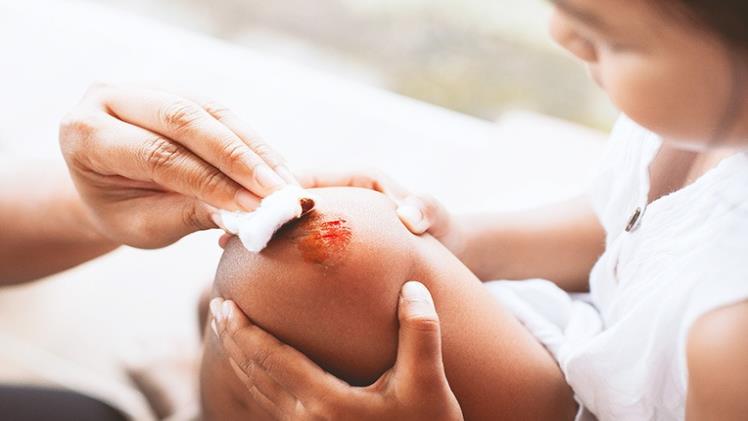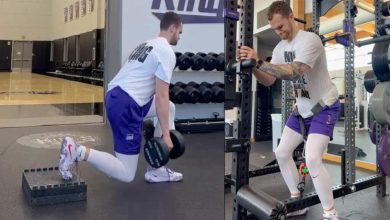
Life doesn’t slow down when minor injuries or illnesses strike. Whether it’s a scraped knee from a fall, a mild burn from cooking, or a sudden cold that leaves you feeling under the weather, knowing how to respond quickly can make all the difference in your recovery. Let’s break down the essential steps to handle minor injuries and illnesses quickly and confidently.
1. Assess the Situation
The first step is to stay calm and assess what’s going on. Can you treat this at home, or does it need professional medical attention? Home treatment is usually enough for minor injuries like small cuts, scrapes, mild burns, or everyday illnesses like colds and mild fevers.
However, be mindful of warning signs that might suggest a more serious issue. If you experience severe pain, excessive bleeding, trouble breathing, or symptoms that worsen rapidly, seek medical help right away.
2. Know When to Seek Professional Help
Even with the best home care, some situations require medical attention. If a wound won’t stop bleeding, a burn blisters severely, a sprain leads to intense pain, or an illness lingers longer than it should — don’t wait.
For fast, reliable care without the long wait times of an emergency room, AFC Urgent Care offers walk-in services for minor injuries and illnesses. Their experienced medical team is ready to help you feel better quickly and get back to your day.
3. Clean and Treat Minor Wounds
For cuts, scrapes, and burns:
- Rinse the wound: Gently clean the area with clean water to remove dirt or debris. Avoid using hydrogen peroxide or alcohol — while these might seem helpful, they can actually irritate healthy skin. Plain soap and water work best.
- Apply antibiotic ointment: To decrease the risk of infection and promote faster healing, apply a thin layer of antibiotic cream.
- Cover with a bandage: Protect the area with a clean bandage to keep dirt and bacteria out.
Don’t forget to change the bandage daily — or sooner if it gets wet or dirty. See medical advice if the wound shows signs of infection (redness, swelling, warmth, or pus).
4. Handle Sprains, Strains, and Bruises
Twisting an ankle, pulling a muscle, or bumping into something hard can cause painful sprains, strains, or bruises. The R.I.C.E. method is a tried-and-true approach to ease pain and swelling:
- Rest: Stop any activity that could further strain the injured area.
- Ice: Apply an ice pack (wrapped in a towel) for 15-20 minutes every hour to reduce swelling.
- Compression: Use an elastic bandage to wrap the area to provide support. Don’t wrap it too tightly — you want to control swelling, not cut off circulation.
- Elevation: Keep the injured area elevated above heart level to further reduce swelling.
If pain persists or you can’t move the affected area normally after a day or two, it’s time to seek medical care.
5. Tackle Colds, Fevers, and Minor Illnesses
When a cold or fever sneaks up on you, it’s essential to act fast to keep symptoms from getting worse:
- Hydrate, hydrate, hydrate: Drink plenty of fluids — water, herbal teas, and clear broths help keep you hydrated and flush out toxins.
- Get plenty of rest: Your body heals faster when you’re well-rested.
- Use over-the-counter medications: Pain relievers like acetaminophen or ibuprofen can help reduce fevers and ease body aches.
- Soothe your throat and cough: Honey (for those over age 1), warm saltwater gargles, and throat lozenges can bring relief from soreness and coughing.
If your fever climbs above 102°F (38.9°C) or lasts more than a few days, it’s best to consult a healthcare professional.
6. Be Prepared for Burns
Minor burns are common — whether it’s from cooking or a hot object. Here’s what to do:
- Cool the burn: Run the affected area under cool (not cold) water for 10-15 minutes to soothe the skin. Avoid using ice, as it can exacerbate the damage.
- Apply a burn ointment or aloe vera: This can ease the pain and speed up healing.
- Cover with a sterile, non-stick bandage: Keep the burn clean and protected.
If blisters form, resist the urge to pop them — this increases the risk of infection. For burns larger than 3 inches, or if they occur on the face, hands, feet, or groin, seek medical care.
Final Thoughts
Minor injuries and illnesses are a part of life — but they don’t have to derail your day. By staying calm, knowing the basics of first aid, and acting quickly, you can ease discomfort, prevent complications, and speed up recovery.
Keep a well-stocked first aid kit on hand, keep informed, and remember that professional help is always nearby if you need it. Stay safe, stay prepared — and stay healthy!



